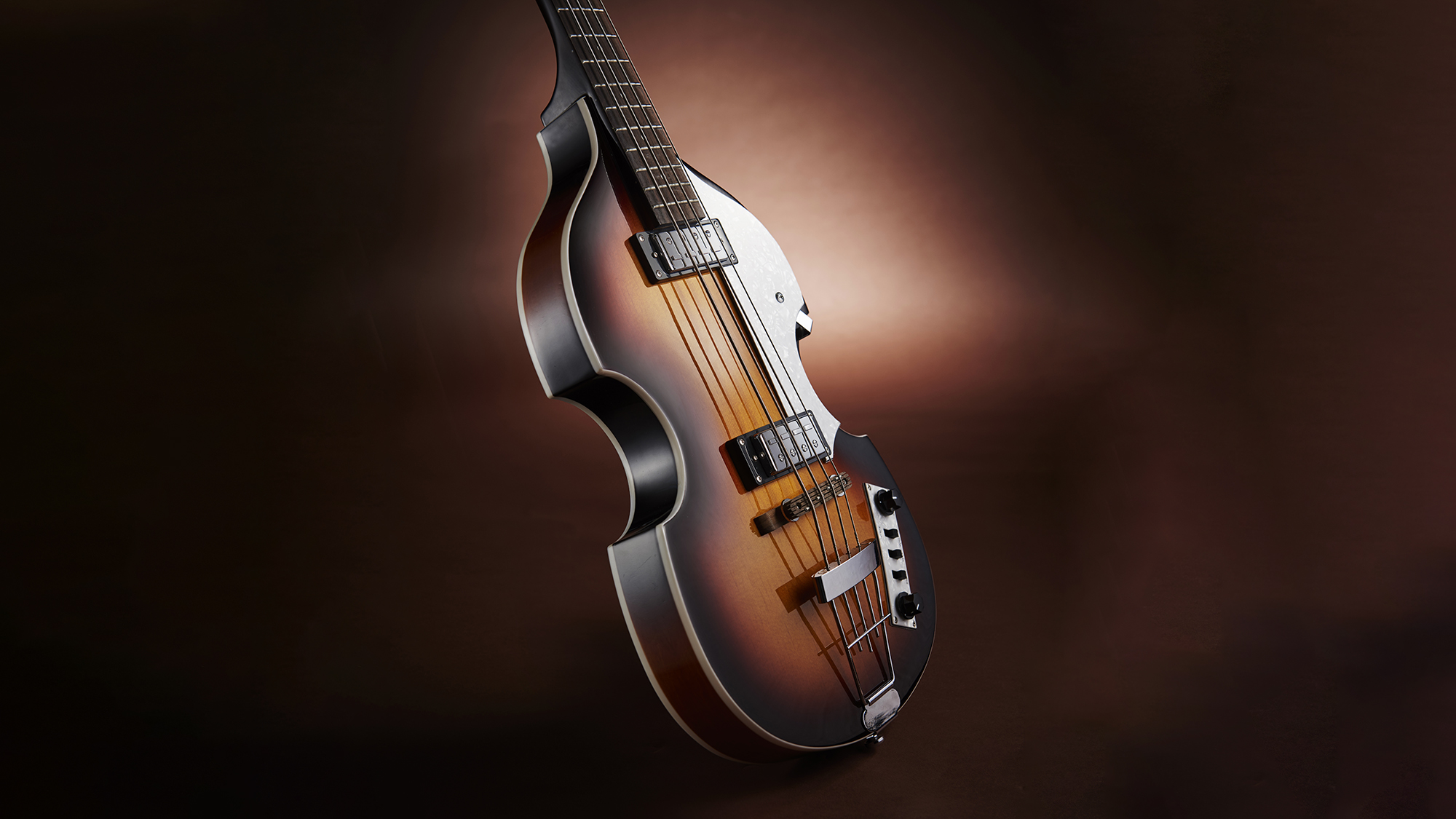Ron Carter: “Miles Davis was great. He never told me what not to play. We’d never talk about changes or tempo“
The jazz legend reflects on a life spent in pursuit of double bass excellence and explains why the best is yet to come
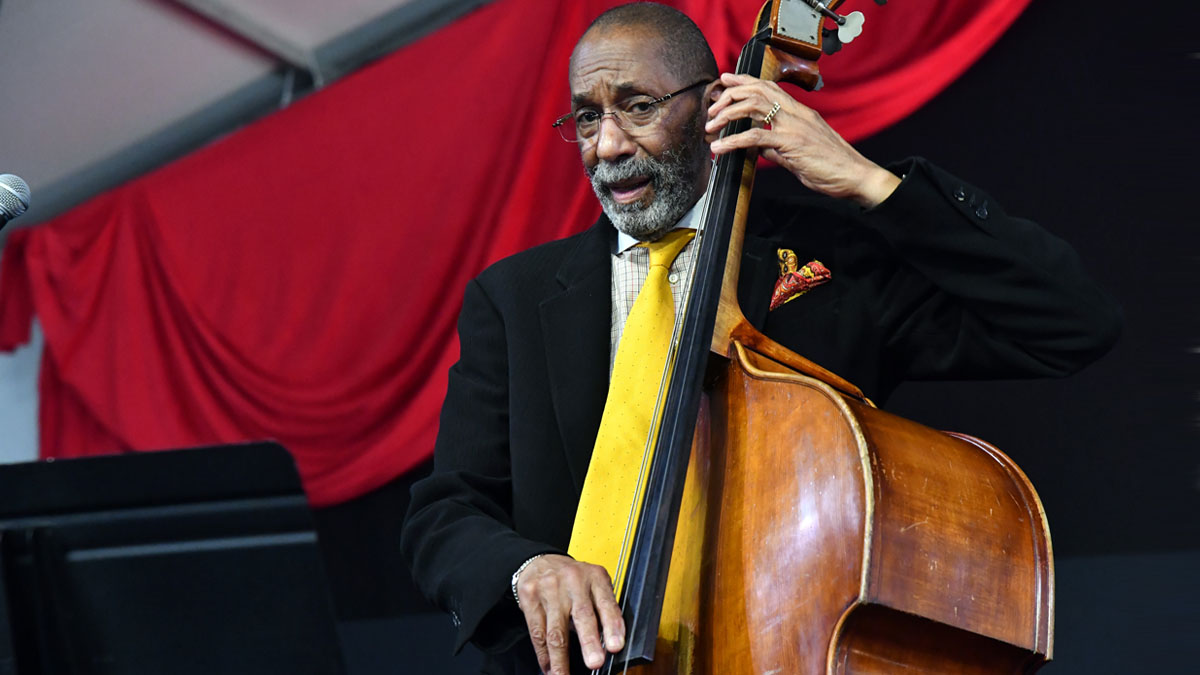
If your life’s achievements add up to a quarter of what Ron Carter has done in his career so far, you’ll have led a first-class sojourn on this planet.
Recognized as a Commandeur de l’Ordre des Arts et des Lettres, a major cultural honor in France, and a prestigious award no matter where you happen to live, Carter has a bewildering array of data on his resumé.
We can talk endlessly about the 2,200-plus recordings that he’s completed, for which he’s earned a Guinness Book Of Records award; we can discuss his classical background and education, or his immersion in New York’s never-more-swinging jazz scene in the Sixties.
We would be remiss if we didn’t mention Miles Davis, in whose immortal second Quintet he played alongside Herbie Hancock and Tony Williams; his roles as an educator and prolific author; and the long series of solo and collaborative albums which Carter continues to release to this day.
In the interests of space, though, we’ll focus on Ron Carter in 2021 – how he views the art of the double bass, how he looks after himself, and which challenges he faces. Believe us, this man deserves the entire magazine, not just these six pages.
As our Zoom call begins, we’re struck by how stern Carter is, like the terrifying school headteacher you used to fear as a teenager. A few minutes in, though, this melts away, and he starts dropping in surreal humor that has us both laughing.
The man is keenly aware of the gravity of his position as the bandleader/bassist of his generation, and – while sticking to a single message of being the best you can possibly be – knows how erratic the music industry can be, especially in current conditions.
All the latest guitar news, interviews, lessons, reviews, deals and more, direct to your inbox!
Mr. Carter, you’ve been a professional bass player since 1959, when you were 22. What are your priorities in 2021?
“I have a level of expectation about my performance every night. I expect to play the best I can. I hope that the band is aware of what’s going on, and that the guy who’s no longer behind the palm tree is giving them a free harmony lesson every night.
“If I can get them to comprehend those possibilities, then I think my night has been made. I’ve always felt that I’m on these gigs because someone told me I can help these people, whoever they are, and whatever the project is. I’ve always gone into a project wanting to make the guy miss me when I’m not there.“
How have you evolved as a bass player in recent years?
“I’m playing better, man. I understand how the bass works, and I’m playing every day. I’m working on the books in my library. I’ve kinda gotten into another location in my head where I realize what the bass can do for bands, how it affects the band, whatever it is, and how I think I’d better learn the bass physically and become more comfortable with my discoveries. That allows me to take those discoveries in another direction, that leads to more discoveries somewhere else.“
How have you specifically improved – tonally, or with your note choices?
“Note choices, and where I use them, and who gets to sample them, and who doesn’t, ha ha! They’re important choices, and the more I listen to my environment, the more I put these choices in play. Sometimes these are great choices, and sometimes they are less than great.“
Some observers of jazz believe that it’s less of a thriving scene than it used to be. Do you agree?
“Not at all. Of course, everything changes, and it’s all relative. It’s like saying that because at some point, cars were only made in a certain color, that they’re no longer viable, or that a particular model is no longer good because the paint job isn’t the same as it was 10 years ago. So I’m not a fan of the ‘jazz is dead’ movement. I never have been.“
I’m not a fan of the ‘jazz is dead’ movement. I never have been. I resent those people who have the audacity to tell me that my life’s work is dead, and if I see them I will tell them that personally
“I resent those people who have the audacity to tell me that my life’s work is dead, and if I see them I will tell them that personally. Having said that, jazz has never gotten the top line of the advertising money. There’s always been something else, whether that is new cars, or new blues, or the latest group from London or New York.
“We, the community, have never gotten the kind of acclaim as if we were somebody else doing something else. The music has managed to survive, though – that’s what you should tell those people who think less of it. We’re not troglodytes or Jurassic Park animals, man, ha ha! We’re living and breathing and changing every day.“
What challenges do you face these days?
“The biggest challenge is playing good every night. The next biggest challenge is when the bass is not responding as I hear it responding. The third biggest challenge is getting through the day with the turbulent things we’re forced to see on a daily basis.
“I need to put those things far enough back in the rear-view mirror to be able to play that night with people, and give them my complete, undivided attention, given the daily events that make that almost impossible to do.
“The fourth biggest challenge is getting a ticket for parking my car where I shouldn’t have parked it, ha ha! Here I am, pushing a bass down the street on wheels, because my car is no longer where I parked it...“
The biggest challenge is playing good every night. The next biggest challenge is when the bass is not responding as I hear it responding
How do you prepare for a live performance?
“It depends on what the situation is. If I’m the bandleader, and I’m working at a club for a week, I’ll plan the set. I write it out and get to the soundcheck in the afternoon, and the band knows that they have six nights to get this stuff right. There’ll be no surprises, no sneak attacks, no altering of the programme just to mess with them.
“I’ve been on those kinds of gigs, where the bandleader would slip a song in or change the key or change the programme order with tunes that we hadn’t rehearsed. I thought that was a waste of time and a waste of talent, and clearly an effort to embarrass the band, individually and collectively.“
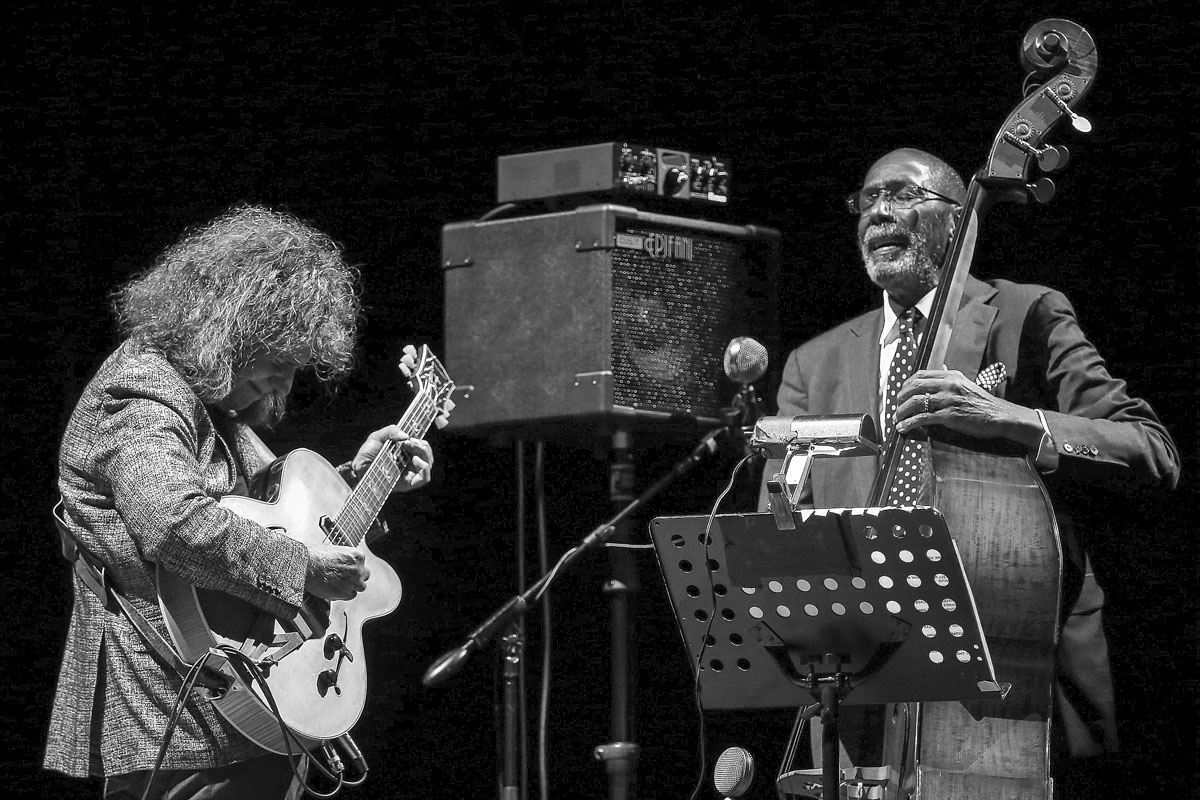
What are your goals as a bandleader?
“I try to prepare the band for a story, and the story has whatever colors they want to bring to the print, but they still tell the story. That’s my first goal. My second goal is to lead the band in the direction that I think the music can tolerate that night. My third goal is, can they tolerate it? Not only that, can they understand what I’m trying to do with it? Have they heard that chorus before? Here comes this thing again two choruses later.“
I’ve been on those kinds of gigs, where the bandleader would slip a song in or change the key or change the programme order with tunes that we hadn’t rehearsed. I thought that was a waste of time and a waste of talent
“Will they accept my view? If this is the top of the tune, I don’t know where the fuck you guys are. Will I have that confidence that wherever they are, they know I’ll take the bullet if I’m wrong? And if they’re wrong, can I have the kind of confidence in them that they have in me?
“The last thing is that I wish them well in the course of the night, because we’re doing this together. Hopefully my note choices and my comments to them will be taken as an attempt to get the maximum out of their talent and my leadership – and none of that shit is personal, man.“
Does all this mean that you’re a tough bandleader?
“It’s all relative. If a parent says, ‘Don’t put your hand in the fire’ and saves your life, is he being a tough parent? Or if he accepts that you will learn after enough times of touching a pan that is too hot, is that tough? I don’t know. You’d have to ask the sidemen I work with how they would qualify my leadership.“
What kind of man was Miles Davis?
“Miles was great. He never told me what not to play. He trusted me to pay the band off, he trusted me to check the reservations for the hotel, all that kind of stuff. We would talk about things that were not musical – politics, sports. He trusted me with stuff that he maybe hadn’t found in anybody in that band, to convey his non-musical thoughts.
“We never talked about musicians or tunes, specifically. Our relationship was as non-musical as a leader and a sideman could have, especially when the leader was that famous. We’d never talk about changes, we’d never talk about tempo – that wasn’t part of what he chose to share with me.
“He’d say ‘Let’s go to a driving range and drive golf balls for an hour’ or we’d go the gym and work out. We’d talk about physical maintenance of your body, and health in general. So that was my relationship with him.“
Miles was great. He never told me what not to play. We’d never talk about changes, we’d never talk about tempo – that wasn’t part of what he chose to share with me
Talking of physical fitness, how do you stay in shape these days?
“I’ve had a trainer come to my home for the past 30 years at five AM, three days a week. We do some stretching and some free weights for an hour, and he’s in charge. I get up at 4.55 AM, open the door at five, and we work until six. Right now I’m doing push-ups and sit-ups with a 25-pound weight on my chest.“
How do you keep your hands and fingers in bass-playing condition?
“Just practice. I’m not a fan of people who specialize in those kinds of things. When I was coming up at college, I’d watch piano players tapping out imaginary notes on table tops, and I’d ask them why they were doing that. They told me they wanted to develop their strength and their chops for their Handel etudes and so on. I said, ‘But what kind of sound do you get when you bang on the table top?’“
So, no finger exercises?
“Personally, I don’t squeeze rubber balls or anything like that. People think it takes a lot of strength to play the bass, and people who feel like that will have you squeezing real hard on the neck and holding the bass real tight.
“Generally, it’s people who don’t play the bass for long sets who don’t realize that you can’t survive doing that for three sets a night at 50 minutes a set, or whatever your gig is.
“I’ve run across a lot of doctors and surgeons in my time who are jazz musicians or jazz followers, and we’ve decided that these exercises exacerbate the onset of early arthritis, because you’re moving the cartilage between each knuckle and wearing it out way before its time.“
I’ve run across a lot of doctors and surgeons in my time who are jazz musicians or jazz followers, and we’ve decided that these exercises exacerbate the onset of early arthritis
“I’ve never been involved in specific exercises, standing, sitting or playing the bass, that I thought would make the bass easier to play. What makes the bass easier to play is knowing the fuckin’ instrument, ha ha! There may be a better way to phrase that for your readers, but if you find a better way, don’t tell me to tell you.“
Believe me, that’s perfect for our readers. Knowing the instrument is only achieved through years of practice, I assume?
“Yeah. I’m still doing it, man. I’m teaching 10 students a week and I’ve written a series of books on how I think about the bass, and how my broad process allows me to find the notes that I find. It’s that kind of ongoing personal research that has allowed me to continue what I do.“
What has been your best work, as you see it?
“I’m still looking for that day.“
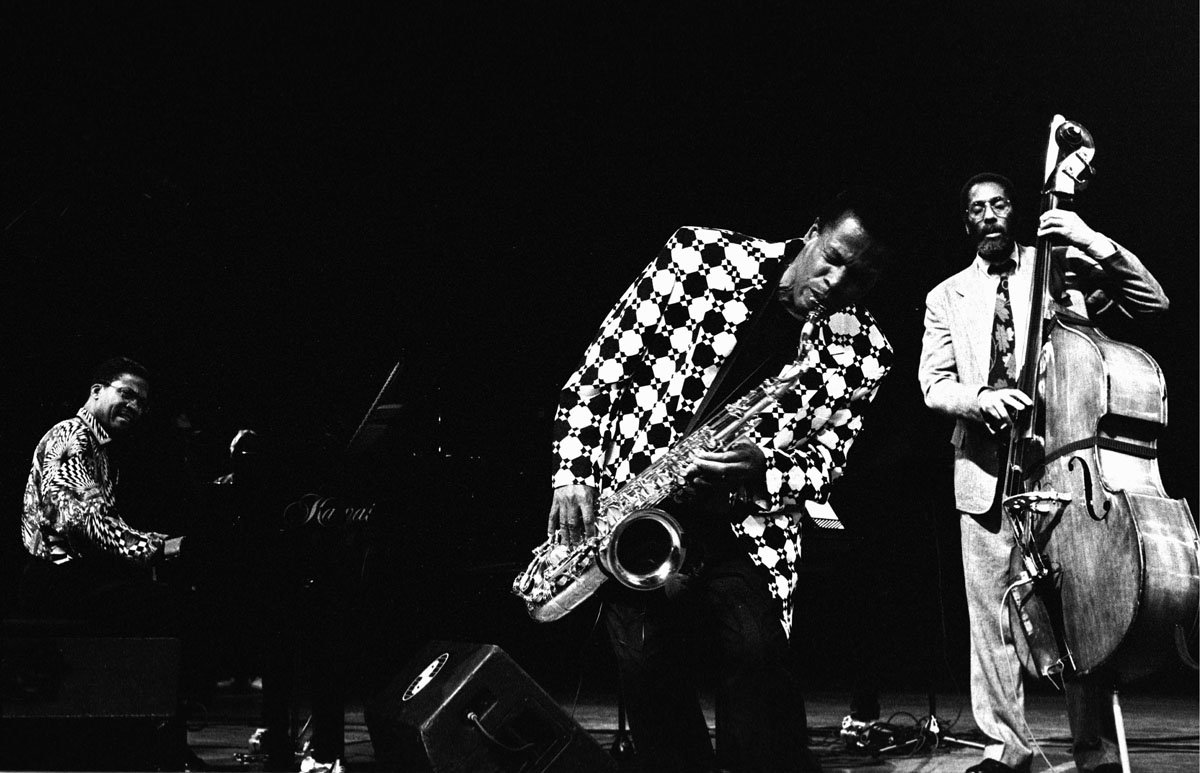
It’s still ahead of you, then?
“Yes, absolutely. We spend hours wondering how to get the right note if we play an F# on the D string, and what notes are here when I’m moving around, and we work on this general concept in various forms all the time. If I realize that my first finger on the G string is C, and over here is E flat or E natural, then I’ve been playing these notes all wrong for a long time, and I just found it this night.
“This awareness always takes place. I’m stunned if I find a different set of notes than I found last week. I think ‘How is that possible? Check that out! Okay – next tune!’ I can’t just roll around on the grass, man, I’ve got to get the fuck up and get going! Ha ha!“
Your most recent album, Remember Love (2018), was recorded as a bass and sax duo with Houston Person.
“Yeah, man. He’s one of the few people I’ve played with who knows every verse of the song. And I’m one of the few people he knows who doesn’t know but three!“
I’m stunned if I find a different set of notes than I found last week. I think ‘How is that possible? Check that out! Okay – next tune!’
The music sounds effortless. Is the advantage of playing in a duo that you have space to move?
“The advantages and disadvantages are about even, but I don’t look at it like that – I look at it like, I’m gonna work with this sax player, and how can I convince him that it’s me, and that I can play these different changes that don’t belong to this tune? I can’t talk him into it, because I’ve already hit the first chord.
“Did I set it up right so he knows what’s coming? If I feel he doesn’t like them, and he’s not responding, am I able to shift back to an non-convertible automobile and get him what he thinks he needs? I got something for him, if he’ll let me show it to him.“
When you put it like that, it doesn’t sound effortless after all.
“It’s always work, man. Everything we do, whether it’s with two, or three, or 16 musicians, it’s a job. It’s a lot of work. If you’re under the delusion that it’s just like falling off a log, well, remember that falling off a log is dangerous too.“
Many of us imagine that there is a level of virtuosity where everything is easy.
“Let me know when I get there!“
Are there any weak areas of your playing that you work on?
“I never say it out loud if I do.“
Let me rephrase: Which areas of your playing do you work on?
“All of them. Intonation, note choice, hand position, how I’m holding the bass, how I can tune up between tunes, how I can tune up during the course of a tune, does the bass feel too high tonight or does it feel too low, are the strings higher or lower depending on the weather and the air-conditioning in the club... Some of these factors are out of my control, but I make a point of being aware of them. It’s like fixing an airplane while you’re flying it.
“Sometimes the bass responds quickly enough, sometimes it doesn’t even feel like your bass. Weak points show up everywhere. Whatever mine are, it’s for me to know and for you to find out, as they used to say in the old days. Ha ha!“
Weak points show up everywhere. Whatever mine are, it’s for me to know and for you to find out, as they used to say in the old days
What is your preferred bass gear?
“La Bella 7710 black nylonwound strings – I’ve used those for 30 years – and a wonderful bass rosin by Weidoeft. I have David Gage pickups and my bass is a 1910 Juzek that I borrowed $100 to buy in 1959. It’s on all but maybe three of those records that you have in your library. I had an extension put on in 1969 – that was the first one.“
Does it require much maintenance?
“No more than I do.“
Do you ever play bass guitar?
“Not at all. I haven’t touched one in more years than I care to remember. I’ve got my hands full with the double bass. It takes up all my attention, and it has done for a very long time. Playing electric bass would take time away from my ultimate goal, which is to play good every night.“
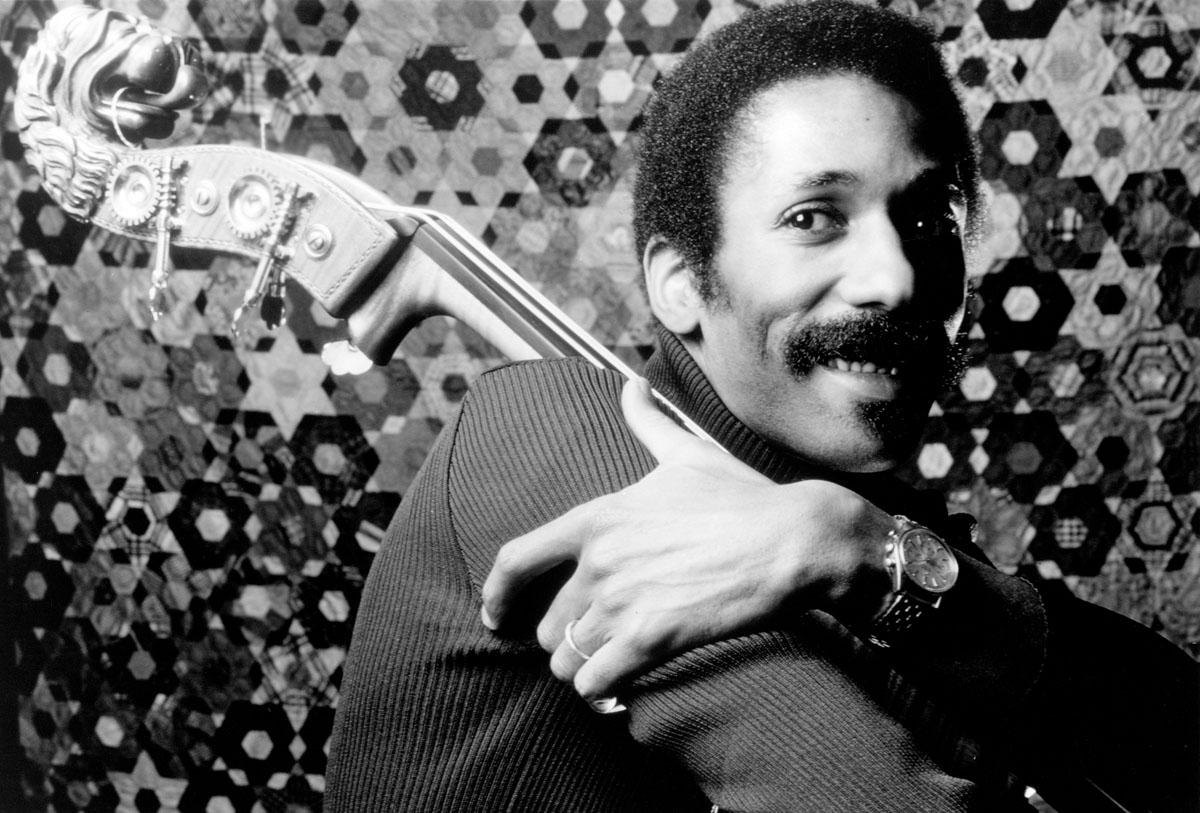
Are you ever disappointed with your performance?
“The last time was 1965... No, I can’t answer that question. Ha ha! I gave my best on all those attempts. I can ask no more from anyone else but that. I tell people ‘Don’t fool around, you’ve only got one take and this is a serious business’ – whatever it takes to give them my view.“
‘Good enough’ is a terrible phrase. You wouldn’t tell a classical musician to settle for good enough
“I’m not there to socialize: I’m giving you all I have because I think I can help you with your project. My job is to present that to you the best I can. So if there are weak moments in my concept or my playing or I missed a note, it wasn’t because I didn’t have the right effort in mind or that I didn’t get to the right point in time in the music, or the bandleader didn’t have enough verbal skills to tell me whatever he or she wanted. I go to these dates because this person thought I could help them. My job is to leave them feeling that I helped them.“
You don’t compromise?
“No-one in my band is allowed to do that. Ever. ‘Good enough’ is a terrible phrase. You wouldn’t tell a classical musician to settle for good enough. Why would you think that it’s acceptable to look at me and say ‘Hey man, that’s close enough for jazz’. Fuck you! Get out of here. We’re not listening to that today. Absolutely not.“
That’s a rare thing, in my experience.
“Well, I don’t know what bands you work with – but if you’re in my band, you bring that shit with you!“
Joel McIver was the Editor of Bass Player magazine from 2018 to 2022, having spent six years before that editing Bass Guitar magazine. A journalist with 25 years' experience in the music field, he's also the author of 35 books, a couple of bestsellers among them. He regularly appears on podcasts, radio and TV.

